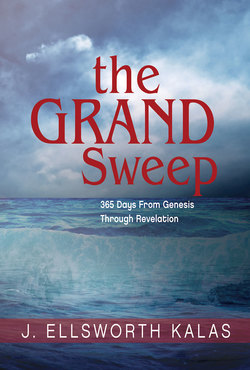Читать книгу The Grand Sweep - Large Print - J. Ellsworth Kalas - Страница 84
На сайте Литреса книга снята с продажи.
Оглавление| DEUTERONOMY 18–20 | Week 10, Day 5 |
The poet Robert Frost said that good fences make good neighbors. Laws are such fences. They make it easier for people to live together in harmony: So that the tribe of Levi shall know what portions of the sacrifices are theirs (18:1-8), there are specific regulations regarding the cities of refuge (19:1-13) and careful limitations on the use of witnesses (19:15-21). And especially, the ancient boundaries shall be respected, not only because to move a marker is a theft from your neighbor, but because the land is, ultimately, the Lord’s (19:14).
We usually think of Moses as a great lawgiver and political leader, but he is identified here as a prophet (18:15-22)—that is, he was one who spoke for God. This is what made his leadership unique. Thereafter there would be national leaders and there would be prophets, but with the possible exception of Saul, the two were not again combined, at least not on a continuing basis.
Are you troubled that the Old Testament gives rules for warfare and encouragement for Israel in times when their enemies outnumbered or outpowered them (20:1-20)? The Bible is a wonderfully realistic book. It not only holds up ideals for perfection, as in the Sermon on the Mount and 1 Corinthians 13, but also gives pragmatic insights for living in a less than perfect world. War was as commonplace in that ancient world as the baseball season in ours, and the people had to know how to live with it.
PRAYER: Give me, I pray, a faith that is pragmatically tough so I will know how to cope with life when it is short of your will. Amen.
What restraints that respect life do you see in the instructions for war in Deuteronomy 20?
